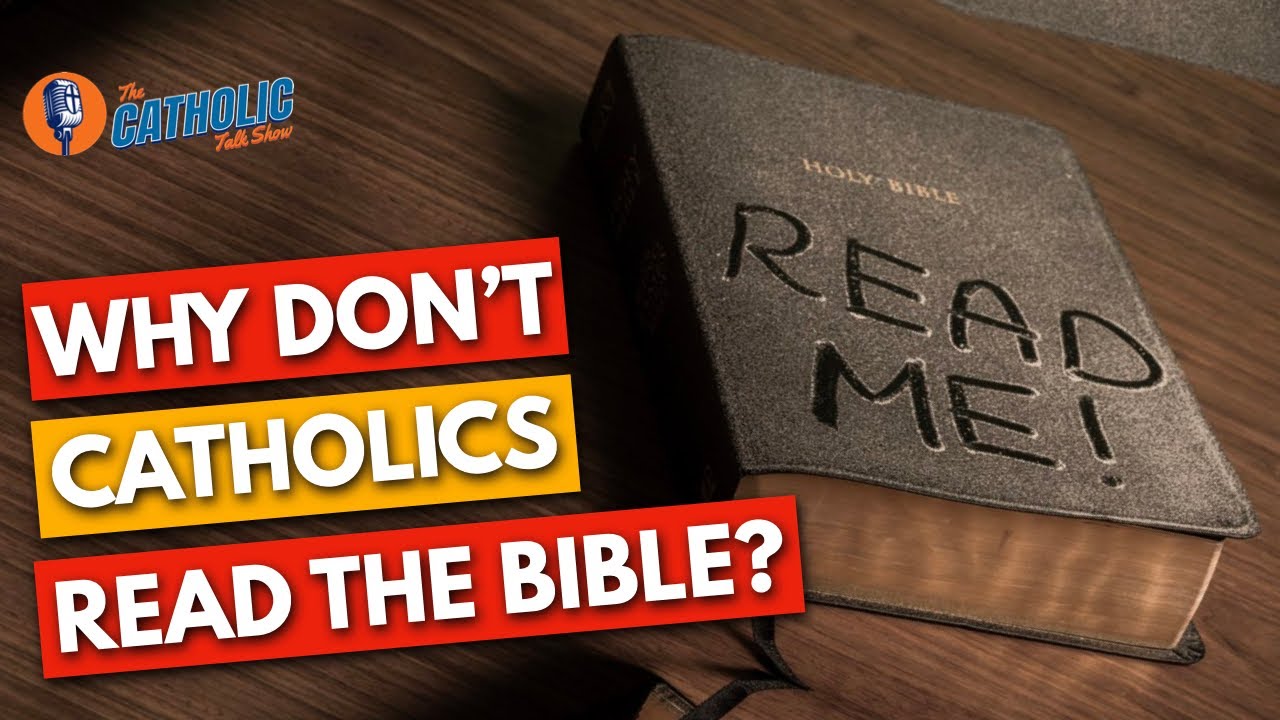Have you ever wondered why many Catholics do not read the Bible regularly? In today’s fast-paced world, where distractions are plentiful and time is scarce, it can be easy to overlook the rich treasures that lie within the pages of the Holy Scriptures. However, delving into the Word of God can offer profound spiritual benefits and nourish one’s faith in unique ways.
Exploring the Bible allows Catholics to deepen their understanding of God’s teachings, gain insights into the life and teachings of Jesus Christ, and find guidance for navigating life’s challenges. By immersing oneself in the sacred texts, believers can cultivate a closer relationship with God, draw strength and inspiration from the stories of faith-filled individuals, and discern the truths that shape their beliefs. In essence, engaging with the Bible is not just an act of religious duty but a transformative experience that can illuminate the path to spiritual growth and fulfillment.
The underlying reasons why many Catholics do not actively engage with the Bible
Many people have wondered why Catholics do not read the Bible as much as some Protestant denominations. This perception may stem from the fact that historically, Catholic Masses were conducted in Latin, making it difficult for the average layperson to engage directly with Scripture. Additionally, Catholics have a rich tradition of relying on the teachings of the Church, including the Catechism, papal encyclicals, and the writings of the saints, alongside the Bible.
One reason why Catholics may not read the Bible as often as some other Christians is that they participate in the liturgy regularly. The Catholic Mass includes readings from the Old Testament, Psalms, New Testament, and Gospels, providing a structured way for Catholics to engage with Scripture throughout the year. This regular exposure to the Bible during Mass may lead some Catholics to feel less of a need to read the Bible on their own time.
Another factor to consider is the emphasis on tradition within the Catholic Church. Catholics believe in the importance of Sacred Tradition, which complements Sacred Scripture as a source of divine revelation. This reliance on both Scripture and Tradition means that Catholics may prioritize other sources of religious teaching alongside the Bible.
Furthermore, Catholics place a strong emphasis on the interpretation of Scripture within the context of the Magisterium, the teaching authority of the Church. The Catholic Church has a long history of theological reflection and interpretation of the Bible, and Catholics are encouraged to approach Scripture with an awareness of the teachings of the Church. This approach may lead some Catholics to rely more on the guidance of clergy and theologians when engaging with the Bible.
It is important to note that while these factors may contribute to the perception that Catholics do not read the Bible as much as other Christians, many Catholics do indeed read and study the Bible regularly. The Church encourages its members to delve into Scripture and deepen their understanding of God’s Word, whether through personal reading, study groups, or other forms of engagement. Ultimately, the relationship between Catholics and the Bible is multifaceted, reflecting the richness of the Catholic tradition and its approach to Scripture.
Why were Catholics not allowed to read the Bible?
Catholics were not allowed to read the Bible primarily because of historical and theological reasons. During the Middle Ages, the Catholic Church believed that only clergy and scholars were qualified to interpret the Scriptures correctly. This led to a period where access to biblical texts was restricted to prevent misinterpretation and promote uniformity in religious teachings. Additionally, the Church was concerned about the spread of heretical ideas that could arise from individuals interpreting the Bible on their own.
In the 16th century, the Protestant Reformation challenged the Catholic Church’s monopoly on scriptural interpretation. Protestants emphasized the importance of individual believers reading and studying the Bible for themselves. This marked a significant shift in attitudes towards the accessibility of the Scriptures.
Over time, the Catholic Church also began to encourage its members to engage with the Bible through official translations and interpretations. Today, Catholics are encouraged to read and study the Bible as part of their faith practice, although guidance from priests and scholars is still valued in understanding the complexities of the text.
Are Catholics taught to read the Bible?
Yes, Catholics are indeed encouraged to read the Bible. The Second Vatican Council in the 1960s emphasized the importance of Scripture study for all Catholics. The Catholic Church provides various resources and programs to help Catholics engage with the Bible such as Bible studies, reflections, and devotions. Additionally, attending Mass regularly allows Catholics to hear Scripture readings and homilies that further enrich their understanding of God’s Word.
Do Catholics read the same Bible as Christians?
Yes, Catholics and Protestants both read the Bible, but there are some differences in the canon of the Old Testament. The Catholic Bible includes books known as the Deuterocanonical or Apocryphal books that are not found in many Protestant Bibles. These books were officially canonized by the Catholic Church at the Council of Trent in the 16th century. Overall, both Catholics and Protestants share the same New Testament canon, which includes the same 27 books.
Why did the Catholic Church remove books from the Bible?
The Catholic Church removed books from the Bible during the Council of Trent in the 16th century. These books, known as the deuterocanonical books or Apocrypha, were removed primarily due to disputes over their canonicity and authorship. Protestants, following Martin Luther’s lead, rejected these books as not being part of the inspired Word of God. The Catholic Church, however, maintained the canonicity of these books. This led to a difference in the *canon* of the Old Testament between Catholic and Protestant Bibles.

